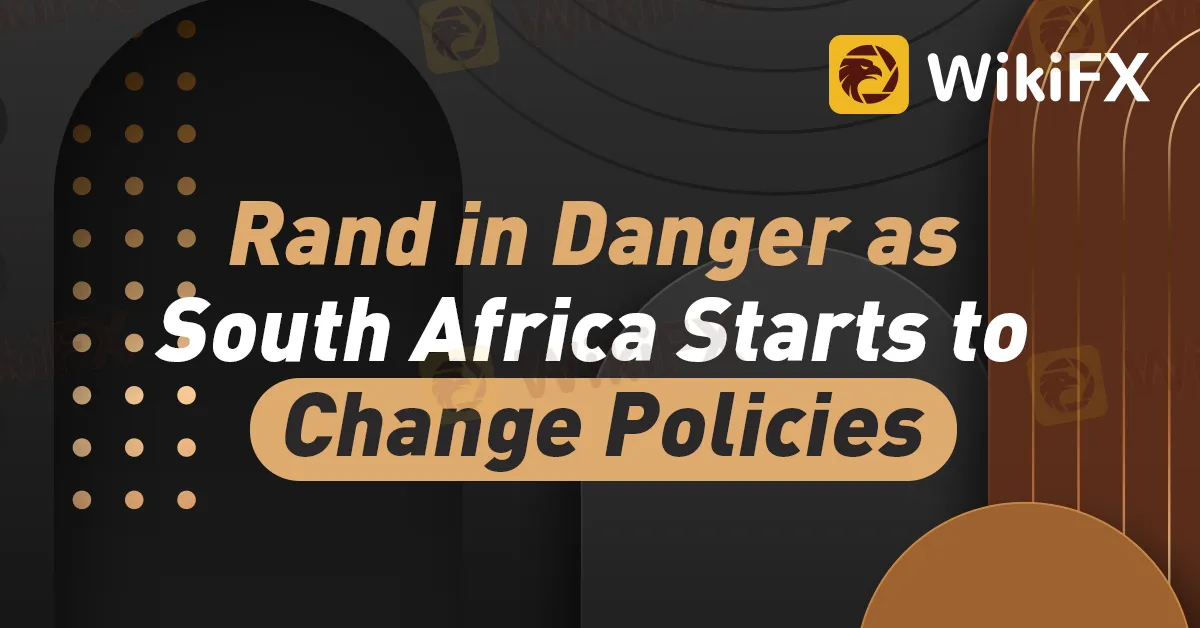简体中文
繁體中文
English
Pусский
日本語
ภาษาไทย
Tiếng Việt
Bahasa Indonesia
Español
हिन्दी
Filippiiniläinen
Français
Deutsch
Português
Türkçe
한국어
العربية
Rand in Danger as South Africa Starts to Change Policies
Abstract:The rand may become more volatile if the South African central bank changes how its monetary policy is carried out.

The rand may become more volatile if the South African central bank changes how its monetary policy is carried out.
Beginning on Wednesday night, the central bank will switch from its present deficit setup to a surplus one, allowing commercial banks to keep and earn interest on excess reserves. Similar to the “layered floor” system utilized by the Reserve Bank of New Zealand and the Norges Bank, the South African Reserve Bank will likewise implement measures to discourage banks from hoarding liquidity and so assist in maintaining an interbank money market.
The adjustment won't have an impact on the central bank's inflation objective or interest rate choices, but it may make it simpler to speculate in the rand, leading to greater price swings under pressure. Since the epidemic, the cost of shorting the South African rand has increased due to elevated ZAR-USD basis-swap rates.
The currency basis would decrease, making it more affordable to short the rand, said Michelle Wohlberg, a fixed-income analyst at Rand Merchant Bank located in Johannesburg. “Risk-off periods may become volatile as a result of this.”
The rand has been less volatile this year than a number of its peers, such as the lira, zloty, and real, despite pressure on risk assets brought on by fears about a slowdown in China, increasing global inflation, tighter policy, and Russia's conflict with Ukraine. The currency's historical correlation to the dollar has increased by 63 basis points to 14.66 percent, making it the fifth most volatile of the 23 developing-nation currencies tracked by Bloomberg.
The Reserve Bank stated that mitigating the risk would need “care and monitoring,” both during the transition to the new framework and in times of extreme market pressure, in a report that addressed worries about volatility. The first developing market economy to use the tiered-floor framework is South Africa.
It stated that the risk was considered to be “moderate” and did not pose a significant challenge to the idea of the new framework for implementing monetary policy. In contrast to mature nations that have floor-style systems, South Africa may experience the exchange rate differently due to its status as an emerging market.
According to the study, the central bank “has a lengthy track record of tolerating FX volatility” and inflation expectations are anchored, making them less vulnerable to exchange rate changes.

Disclaimer:
The views in this article only represent the author's personal views, and do not constitute investment advice on this platform. This platform does not guarantee the accuracy, completeness and timeliness of the information in the article, and will not be liable for any loss caused by the use of or reliance on the information in the article.
Read more

Common Tactics Used in Online Trading Fraud Today
Know the top online trading scams of 2025, from fake apps to pump-and-dump tricks. Simple tips to spot and avoid them, keeping your money safe in this easy guide.

U.S. March ISM Manufacturing PMI Released
The U.S. March ISM Manufacturing PMI data shows that manufacturing has contracted for the first time, and investors should pay attention to future changes and impacts on the sector.

Breaking News! Forex Inflows Surge to $17 Billion
Nigeria's foreign exchange inflows saw a significant increase in the fourth quarter of 2024, reaching $17.39 billion. This growth reflects strong foreign investments and export revenues, bringing new confidence to the market.

Should You Beware of Forex Trading Gurus?
Know the reality behind forex trading gurus, examining their deceptive tactics, inflated promises, and the risks associated with trusting them for financial advice.
WikiFX Broker
Latest News
Exposing the Top 5 Scam Brokers of March 2025: A Closer Look by WikiFX
Gold Prices Climb Again – Have Investors Seized the Opportunity?
Webull Launches SMSF Investment Platform with Zero Fees
Australian Regulator Warns of Money Laundering and Fraud Risks in Crypto ATMs
FCA Warns Against 10 Unlicensed or Clone Firms
CySEC Warns Against 14 Unlicensed Investment Websites
Top Currency Pairs to Watch for Profit This Week - March 31, 2025
Will natural disasters have an impact on the forex market?
Philippines Deports 29 Indonesians Linked to Online Scam Syndicate in Manila
The Withdrawal Trap: How Scam Brokers Lure Victims into Paying More
Currency Calculator







